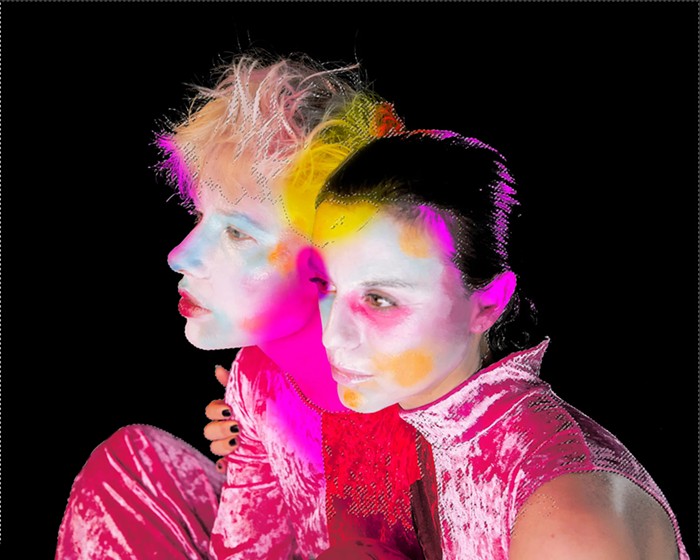In 1988, I was 9 years old, living vicariously through my older brother's rap vinyl and tapes: Public Enemy's "You're Gonna Get Yours," Eazy-E's "Boyz-n-the-Hood," LL Cool J's "I'm Bad."
To the last, my big bro would rap along—sporting Uncle L's signature red Kangol bucket hat—but Bigger and Deffer also contained a betrayal: rap's first ballad, the pink-packet-sweet "I Need Love." The pillowy lyrics, that weepy Yamaha flute-synth—I hated it. The song splattered the airwaves, coating the claps of the holy Roland 808 with warm, clotting cheese. To my ears, it sounded no different from the other sappy slow-dance fodder on the airwaves. To be more blunt, it reminded me of Keith Sweat.
I never felt comfortable listening to the man in the color-block sweater, born Keith Crier. (In the early '80s, he took his mother's surname for his stage persona—yes, Sweat is a real family name. I guess in matters of love, sweat is preferable to tears, though both are inevitable.) Aside from his frustrating ubiquity, I was never sure precisely why Sweat put me off, though the singing didn't help. I know that when arguing with friends about his voice, the word "goat" was my most common descriptor. While a nation of smooth R&B dudes were on the radio just begging for the sex, somehow it was Sweat's bleating—I mean pleading—that particularly grated on my nerves. I mean, what was this whiny-ass shit?
See, I wore the ink off both sides of my Bobby Brown tape, because he was the man, he made demands, he had an attitude. If he, and not Sweat, had made the early new jack swing smash "I Want Her," he wouldn't have asked the girl if she was a dream; he would've told her to wake up and smell the coffee. (Boom!) Keith Sweat was the guy buying flowers, making promises; Keith Sweat was the guy who rap, and the growing ranks of rap-influenced R&B, was telling me I must never be (or so I thought). He was a simp. I danced ever harder to "My Prerogative."
Once I'd begun my teens, and realized I wouldn't ever approach women, or the world in general, like Bobby Brown did, I still had to become a self-righteous music snob. Didn't we all? Aren't some of us still? So around the time that those masters of '70s soul and R&B went from the happy soundtrack of Sunday housecleaning to, like, important music that really spoke to me, I started to get very huffy about what I regarded as the cheap puerility of contemporary R&B. Even though the dude was every bit a class act, I grouped Keith Sweat with the other jokers. And even after I forgave them (because who could resist the charms of Jodeci, of "Too Close," or even of "Splackavellie"?), Sweat somehow remained on my no-fly list.
Not to mention on the charts. Unlike most of his contemporaries, the man stayed in fashion for a decade—from the rayon visions of the new jack swing period to the leather-and-a-turtleneck Bad Boy era, Sweat palpably clung to the airwaves. I mean, he really hung in there. "Make It Last Forever" was not just the title track of his number-one, eventually triple-platinum debut album, it seemed to be an explicit command to program directors everywhere: You will keep this song in heavy rotation for all eternity. I couldn't get away from it. "Twisted" haunted my years after high school, the melodrama of the Paul Hunter–directed video forever imprinted on my brain from relentless MTV exposure in the late '90s. (Remember? Sweat as a suave detective, put into a morally compromising position by a beautiful killer? He was the original Luther.) Cruising toward 20, all I wanted in life was underground-rap 12-inches, new Ecko gear, and for Sweat's reign to end.
But things, you may have heard, do change. Now well into my 30s, all the ill will I banked during my snobbery period has mostly mellowed into ambivalence. Years later, when I heard Drake call himself the "light-skinned Keith Sweat," I wasn't even mad. How could I be? I was, after all, listening to Drake. I found myself moving to "Make You Sweat" one night at Havana and realized something: I'd secretly always liked it. Then, late last year, I got on a kick about live R&B albums, feeling inspired by the classic concert discs from Curtis Mayfield, Marvin Gaye, and Donny Hathaway. I became determined to find every live soul/R&B record I could get my hands on, whether they were gathering dust in used bins or streaming on Spotify, which led me to the 2003 album Keith Sweat Live. As much as I wanted to turn my nose up, I had to give it a shake. And wouldn't you know it—it sounded like a goddamn party. He rocked the crowd like the veteran he was. His voice sounded richer and far less goatlike than it used to. He even had a hype man on an actual talkbox! I kept listening. I even heard myself recommending it to a fellow R&B-loving friend. I had officially relented. War is over, if you want it.
So fuck it—when Keith Sweat rolls though Tacoma's Emerald Queen Casino for his annual check, as he has for the last three years, go. Wear your best fit. Stand up the whole time, sing loud, throw your hands up. You won't be alone. Because when you really think about it—who exactly can do it like him? Nobody, baby, as far as I know. ![]()



















